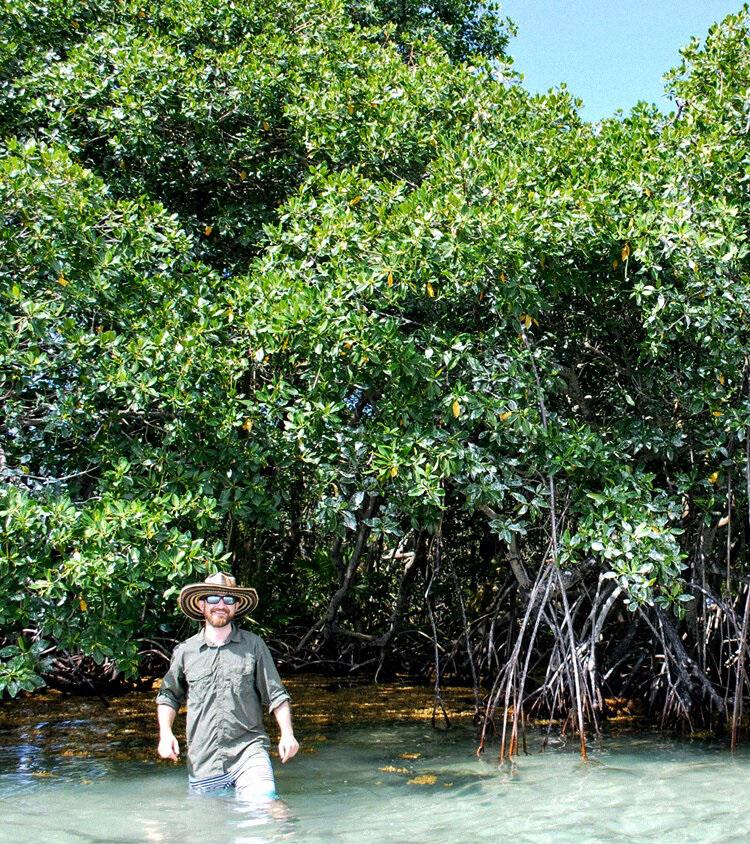Steven Canty
This project is designed to promote the responsible and sustainable use of coastal resources, working directly with small-scale shrimp farmers to rehabilitate currently barren ponds to biodiverse wetland habitats. The provision of economic incentives to small-scale shrimp producers to alter their practices, not through simple dispersal of funds, but through utilizing naturally occur products that can help reduce overhead costs of production and improve productivity. The combination of utilizing natural resources and appropriate technology will provide an enhanced productivity and income to coastal communities, whilst directly promoting ecologically sound practices.

The Smithsonian’s Steven Canty at work. ©Image by Valentina Cucchiara for Parley Mexico.
The Pacific coast of Honduras has seen a rapid expansion in shrimp ponds since the 1980’s which have deforested twenty-five percent of the regions mangrove forest. A large section of the Honduran Pacific coast is delineated as the 1000th Ramsar wetland site, which contains approximately twenty percent of all the Pacific mangroves from Mexico to Panama, a recent IUCN study revealed that forty percent of mangrove species in Central American Pacific coast are considered threatened. The expansion of shrimp farming, part of the ‘Blue Revolution’, is supposed to ensure food security and economic development for impoverished coastal communities. In the majority of cases these coastal communities remain impoverished due to the utilization of inappropriate technologies, reliance on commercially produced shrimp feeds, and poor market access.
This innovative project will develop and pilot methods to produce organic shrimp feeds within the confines of the shrimp ponds, to reduce the dependence of the small-scale producer on commercially produced feeds in addition to enhancing the biodiversity of the area. The replanting of mangrove will be critical in providing natural food stuffs, reducing erosion of pond dykes, and rejuvenating critical ecosystem services. Inappropriate technologies will be removed from the production cycle and be replaced with technologies appropriate to the scale of production, are cost-effective, and can be easily maintained. With the aim of improving the profitability of small-scale shrimp production, through reducing running costs, decreasing shrimp mortality throughout the production process, and increasing the productivity of the shrimp ponds. Market access of the small-scale producer will be increased through direct links to consumers in the Tegucigalpa (the capital of Honduras), and polyculture of other commercially viable seafood products will be trialed to reduce the vulnerability of the small-scale producer to market shocks.